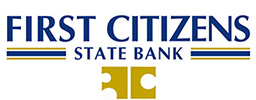By Al Stanek
Whitewater Banner volunteer staff
whitewaterbanner@gmail.com
Whitewater citizens who were rightly confused about the costs of dredging the city’s two downtown lakes got some much needed clarification at the March 15 Whitewater Common Council meeting.
The dredging of Trippe and Cravath lakes has been completed according to City Parks and Recreation Director Eric Boettcher and the project is expected to come in under budget. There are several options for distribution of the nearly 69,000 cubic yards of dirt that have been deposited in a field just east of the Whitewater University Innovation Center.
Initial bids for the dredging portion of the project came in over budget and were rejected by the Common Council on November 16. The low bid was nearly $2.5 million which was well above the estimated entire project budget of just under $1.5 million. Dredging plans were downsized from the original plan to remove 81,000 cubic yards of material and an area that was thought to possibly be contaminated was avoided which resulted in a much lower $1.1 million cost to dredge and transport the material.
Boettcher also addressed the issue of options for what to do with the huge pile of dirt visible off of Howard Road on the city’s east side. “First of all we have to let the material de-water,” said Boettcher. “After that is complete we can either spread the dirt over the area where it is and possibly other nearby areas,” he added. The option of providing the remaining black dirt to area farmers or citizens is also under consideration.
Common Council members also heard from five area property owners who were concerned about newly distributed property assessment notices. Property owners can discuss the reasoning behind any change in property value with the company hired to do the assessments by scheduling an appointment by calling (920) 749-8098 before April 24. Occasionally this conversation may result in a change being made in the assessment. Ultimately, however, if a property owner objects to the assessment they must file a “Form of Objection” with the Whitewater City Clerk’s office at least 48 hours before a city established “Board of Review” meeting scheduled for Tuesday, April 26 at 6:30 p.m.
Property tax bills mailed out by the City of Whitewater in November of each year represent the total of City, County, School District and Technical College taxes based on the assessed value of each property. The city’s portion of annual property tax bills is determined by a property’s assessed value multiplied by a “mill rate” (cost per thousand dollars of property value) which is not determined until the city formally adopts the next year’s budget. That final city budget is significantly impacted by the amount of state and other financial contributions which are not determined until late in the fall of each year.
Josh Sherman, the designated assessor for the City of Whitewater, told Common Council members that residential and rental units of less than four units generally increased by 7% to 11%. Commercial and larger residential properties are assessed under a unique state driven formula. Sherman indicated that commercial and large residential properties increased by an average of 15%, but were considerably higher in some cases.
Sherman explained that changes in property values are determined by actual recent sales of property which, in Whitewater like nearly everywhere else, have generally been coming in well above previous property value assessments. He pointed to the fact that there had not been many commercial and large residential property sales during the past few years which had kept previous years’ commercial assessments relatively steady. Several sales of very large Whitewater residential properties this past year are likely to be the cause of the steep increase according to Sherman.
Theoretically significant increases in both residential and commercial property values should increase the total city’s tax base which, when divided equally among property owners based on the cost per thousand mill rate, should not impact residential taxpayers and landlords owning other than four unit or larger rentals. The disparity between assessment increases for commercial versus residential property is likely to have a significant impact on commercial and large rental property owners.
Larry Kachel, a principal in DLK Enterprises, told Common Council members that an increased tax burden comes at the same time that landlords have been forced to turn to 10 month rental contracts as opposed to 12 month contracts in reaction to the change in demand caused by the reduced number of UW-Whitewater students seeking off-campus housing.





















